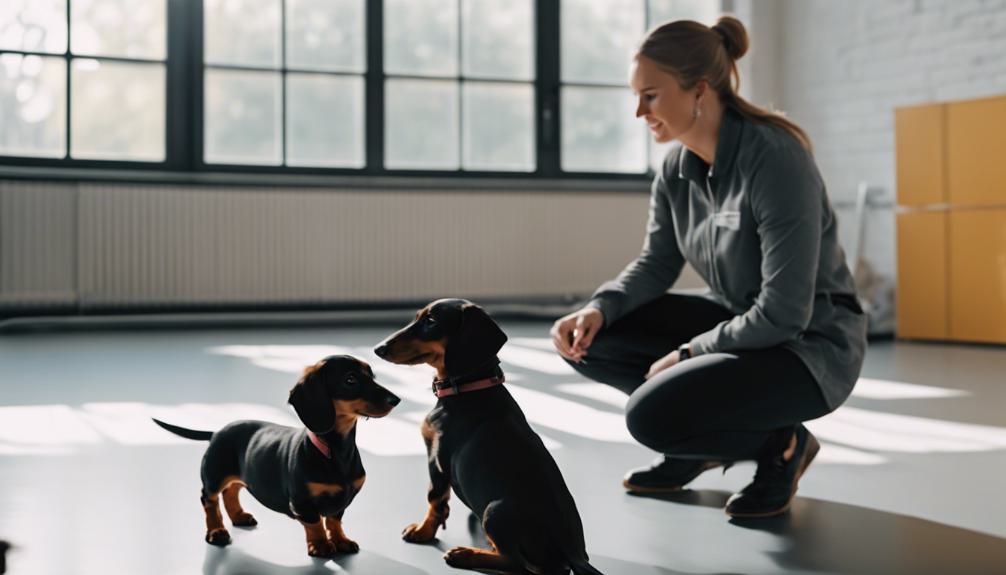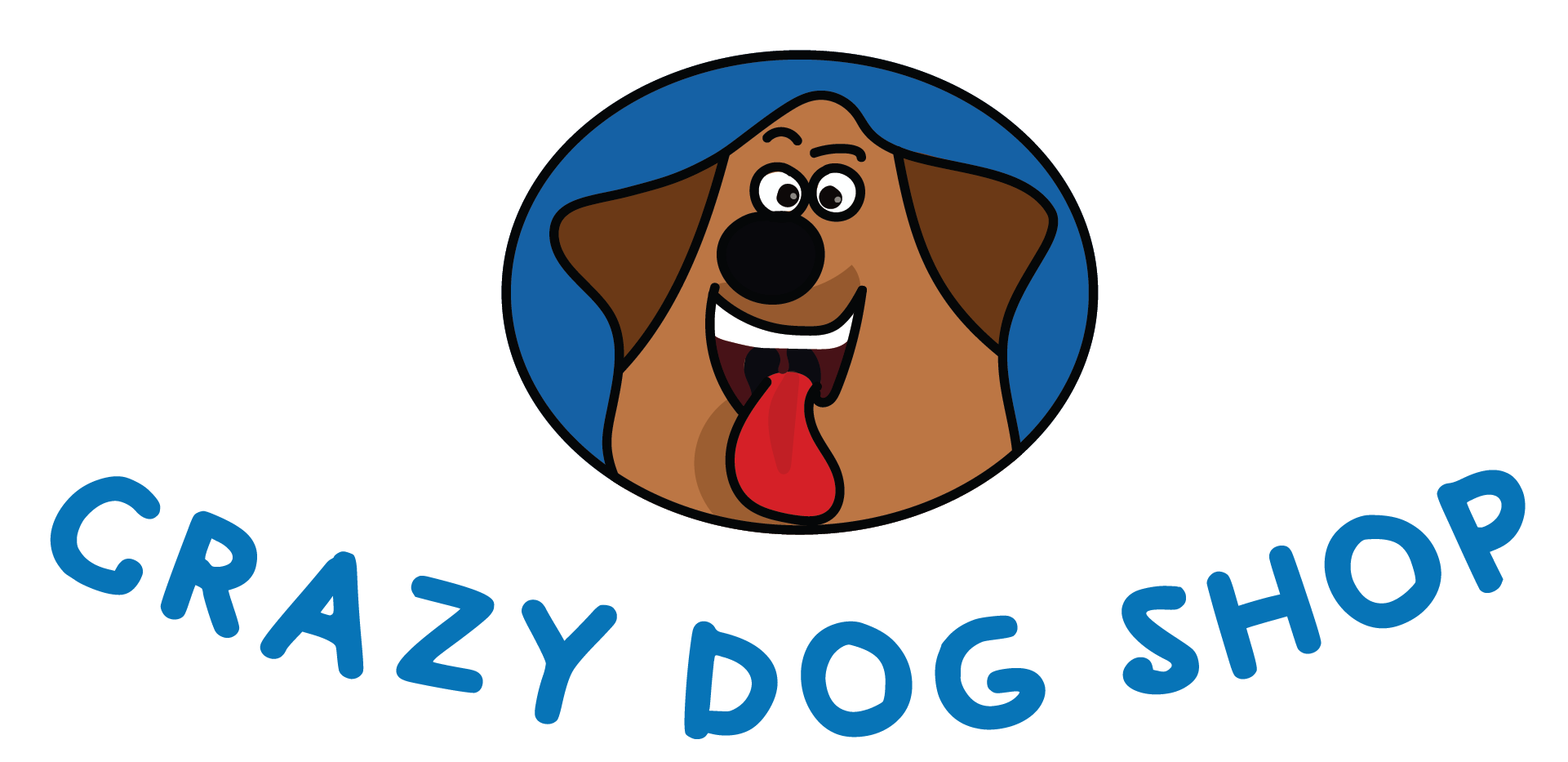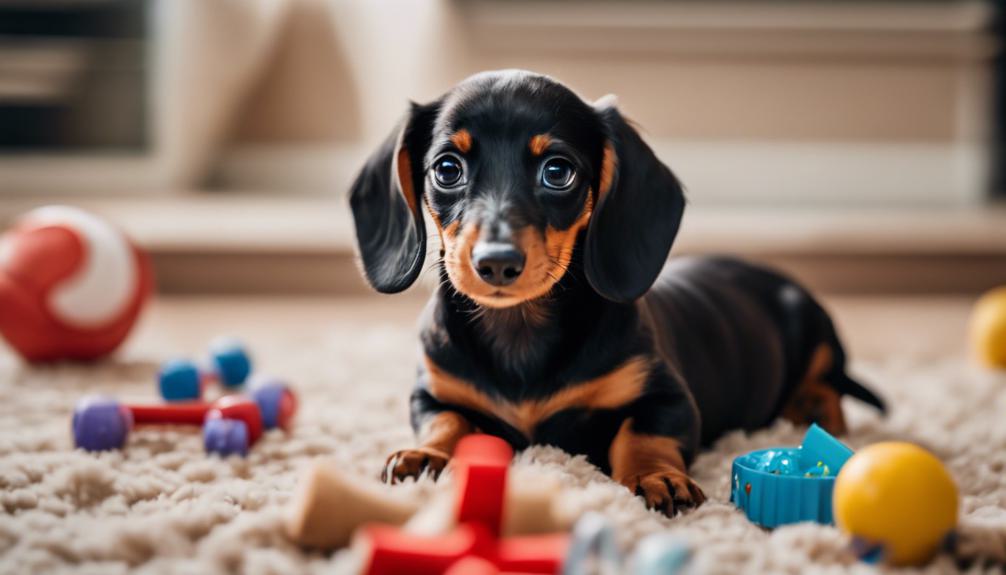How to Train Your Dachshund Puppy? Weiner Dog Training Tips
To train your Dachshund puppy effectively, establish clear expectations and routines. Focus on positive reinforcement techniques, setting a training schedule that includes feeding, playtime, and rest. Socialization and mental stimulation are vital—a variety of activities like puzzle toys can help. If you find it challenging, consider professional training assistance for customized plans. Remember, consistency is key in building a strong bond with your Weiner dog. Following these tips will lay a solid foundation for your puppy’s training journey, ensuring a well-behaved and happy companion by your side. Your Dachshund’s development depends on these fundamental training aspects.
Key Training Considerations
When training your Dachshund puppy, focus on establishing clear expectations and routines to set a solid foundation for learning. Importance is key in your training approach to help your puppy understand what’s expected of them.
Positive reinforcement, such as using treats and praise, is an effective way to motivate your Dachshund and reinforce good behaviors. Consider enrolling your furry friend in Puppy Kindergarten classes to provide them with essential socialization skills and basic training. These classes can also help your Dachshund interact with other dogs in a controlled environment.
Training Schedule for Dachshund Puppies
In the realm of training your Dachshund puppy, establishing a daily routine is key. Consistent training sessions help reinforce good behavior and build a strong bond with your furry companion.
Daily Routine for Puppies
Establishing a consistent daily routine for your Dachshund puppy is essential for creating structure and ensuring successful training. Your puppy’s schedule should include specific times for feeding, potty breaks, playtime, training sessions, socialization, and rest.
By following a structured daily routine, your puppy learns expectations and develops good habits early on. This routine also provides mental stimulation, physical exercise, and bonding opportunities for you and your furry friend.
Remember to adjust the daily schedule as your puppy grows and progresses in training to meet evolving needs and developmental milestones. Consistency is key in helping your Dachshund puppy thrive and become a well-behaved companion.
Consistent Training Sessions
To maintain consistency and promote effective learning, make sure that your Dachshund puppy‘s training schedule is structured and regular. Dachshund puppies benefit from short, frequent training sessions due to their short attention spans.
Including a variety of training exercises in each session helps keep your puppy engaged and interested in learning. Positive reinforcement, such as treats and praise, is essential during training to encourage good behavior and strengthen the bond between you and your puppy.
As your Dachshund puppy progresses, gradually increase the difficulty of training tasks to challenge their skills and further their development. By following a consistent training schedule with a focus on positive reinforcement, you can help your Dachshund puppy learn effectively and enjoy the training process.
Positive Reinforcement Techniques

Using treats, praise, or toys to reward your dachshund puppy for desired behaviors is a key aspect of positive reinforcement training. Positive reinforcement involves rewarding good behavior to encourage its repetition. Here are some techniques to effectively implement positive reinforcement when training your Dachshund puppy:
- Consistent Rewards: Offer rewards immediately after your puppy displays the desired behavior.
- Marker Words: Use a consistent marker word like ‘yes’ or a clicker to signal the exact moment your puppy does something right.
- Timing is Key: Be prompt in delivering rewards to reinforce the behavior effectively.
- Create a Positive Association: Positive reinforcement makes training enjoyable, fostering a strong bond between you and your Dachshund.
Mental Stimulation Activities
To keep your Dachshund puppy mentally sharp, engaging in puzzle toys will provide enrichment and stimulate their problem-solving abilities.
Incorporating obedience training exercises alongside these toys can enhance their learning and focus.
Puzzle Toys for Enrichment
Puzzle toys are essential for enriching your Dachshund puppy’s mental stimulation and preventing destructive behaviors. Here’s why they’re vital for your pup:
- Mental Stimulation: Puzzle toys challenge your Dachshund’s problem-solving skills, keeping them engaged and preventing boredom.
- Cognitive Development: These toys encourage independent play, aiding in the development of cognitive abilities in your puppy.
- Interactive Play: Filling puzzle toys with treats or kibble makes them more enticing and rewarding for your Dachshund.
- Positive Outlet: Regular use of puzzle toys helps channel your puppy’s energy positively, promoting mental well-being and preventing destructive behaviors.
Obedience Training Exercises
Engage your Dachshund puppy in obedience training exercises to provide mental stimulation and strengthen your bond. Interactive games, such as teaching new tricks and incorporating scent work activities, can challenge your puppy’s intelligence and keep them engaged.
For mental stimulation, try hide-and-seek games with treats to encourage your Dachshund to use their sense of smell and problem-solving skills. Rotate toys and activities regularly to prevent boredom and keep your puppy mentally sharp.
These obedience training exercises not only provide mental stimulation but also foster a stronger bond between you and your Dachshund. By engaging in these activities, you aren’t only training your Dachshund puppy but also enriching their life and overall well-being.
Professional Training Assistance

Seeking professional training assistance for your Dachshund puppy can provide invaluable support and guidance in addressing specific behavioral issues and creating a personalized training plan. When you begin training your little hound, consider the benefits of professional training assistance:
- Expert Guidance: Professional trainers offer expertise in dog behavior and training techniques.
- Customized Training: They tailor training plans to suit your puppy’s individual needs.
- Structured Sessions: Trainers provide a structured environment for teaching commands and socialization skills.
- Consistency and Communication: Working with a professional guarantees consistency, positive reinforcement, and effective communication with your puppy.
Professional assistance can help you navigate the challenges of training and strengthen the bond between you and your Dachshund.
Bonding Through Training
When considering professional training for your Dachshund puppy, you’ll find that bonding through training plays an essential role in fostering a strong relationship based on trust and communication. Consistent training sessions not only teach your Weiner dog obedience commands and tricks but also help establish a positive bond.
By building trust through training, you enhance communication and comprehension with your pup. Positive reinforcement during training sessions creates a foundation of trust and respect in your relationship. The shared experience of learning and growing together forms a deep connection between you and your Dachshund, strengthening your partnership.
Through training, you not only shape your puppy’s behavior but also deepen the bond and mutual comprehension between the two of you.
Frequently Asked Questions
How Do You Train a Puppy to Be a Weiner Dog?
To train a puppy to be a weiner dog, start early, use positive reinforcement, enroll in classes, provide chew toys, and be patient. Consistent training helps your puppy thrive and develop into a well-behaved companion.
Are Wiener Dogs Easy to Train?
Training wiener dogs can be challenging due to their stubbornness and independence. Consistent methods and positive reinforcement are essential. Bark training may be needed. Grasping their traits and adjusting techniques will improve training success.
How Hard Is It to Potty Train a Weiner Dog?
Potty training a Weiner dog can be challenging due to their stubbornness and small bladder size. Consistent routine and positive reinforcement are essential. Supervision is key to prevent accidents indoors. Establish a designated potty area for success.
How Do I Get My Dachshund to Listen?
To get your Dachshund to listen, use positive reinforcement with treats and praise, keep training sessions short and engaging, establish yourself as a confident leader, practice commands in various environments, and seek professional help if needed.
Conclusion
To sum up, training your dachshund puppy requires patience, consistency, and positive reinforcement.
By following a training schedule, using mental stimulation activities, and seeking professional assistance when needed, you can help your weiner dog develop good behavior and strengthen your bond.
Remember, training is a lifelong process that requires dedication and love.
With the right approach and mindset, you can raise a well-behaved and happy dachshund companion.

